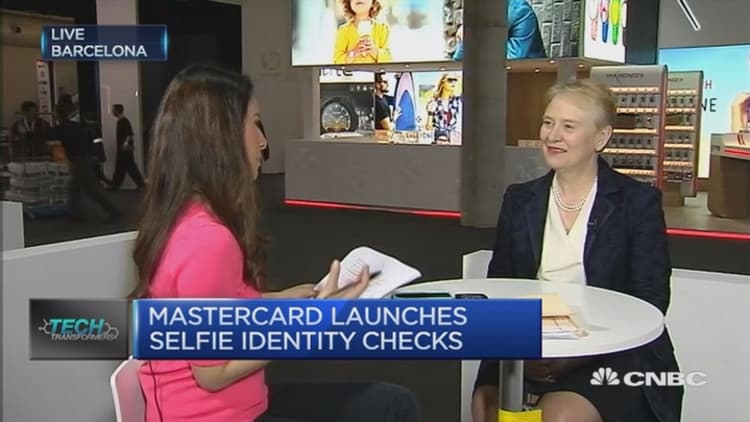Bank of Montreal is rolling out what it claims is the first corporate credit card program that will allow users to complete online payments with a "selfie" or fingerprint check.
In the first phase of the launch, BMO employees in the U.S. and Canada who have been issued with corporate credit cards will use the MasterCard Identity Check mobile app to verify online purchases using biometrics: a fingerprint scan or facial recognition using a smartphone camera.
The corporate card scheme will be fully available by the summer and a similar option for personal consumer cards will follow later in the year. The first phase of the launch will serve to test the process and establish best practices.

Speaking to CNBC, Steve Pedersen, vice president and head of North American corporate card products for BMO, said biometric technology will increase security but will also increase customer convenience.
"The security measures we have are already pretty good," he told CNBC in a phone interview. "This makes that security protocol and the navigation through it easier, faster and that's really important.
"As an industry we have to go this way. Our customers are expecting it of us and it's important for us as an industry to show the innovation."
According to Pedersen, biometrics will appeal to younger people and those in the tech industry.
"An older demographic is a little bit more reluctant whereas the younger demographic are so used to the technology", he said. "This is a natural extension."
But while biometrics offers greater security and convenience to users, others have voiced concerns.
"Biometrics are never a good way of providing authentication because you can't revoke them. If your password gets compromised, you can change it to something new," Diogo Monica, IEEE member and security lead at Docker told CNBC via email.
"But with only one face, you really don't have options if your photo is compromised. And it's much easier to steal pictures of someone's face than to steal someone's fingerprints."
According to Siân John, Chief Strategist for EMEA at Symantec, testers have been able to bypass fingerprint security by removing fingerprint readers or using devices to send false signals. Something similar could be done to mobile biometrics.
"For websites or banking apps this could be finding and exploiting zero day flaws that underpin that user interface," she explained to CNBC in an email.
However, John said there were other advantages to biometric checks.
"Arguably biometrics are far more secure than a pin," she said. "A pin can be stolen with a quick glance over your shoulder. However stealing a fingerprint? That's a little more difficult.
Currently, Mastercard's biometrics system is designed for digital transactions, such as buying items from the internet. But could biometrics eventually be used for payments in shops and restaurants?
"In the U.S. where [chip and pin] is very much still evolving, it's an interesting question," said Pedersen. "There's probably an increased possibility for leapfrog technology in the U.S. to come forward just because … the deployment of chip technology in the United States is progressing at a slower pace than what most people would have thought, so here's where a capability likes this has some really interesting nuances."




